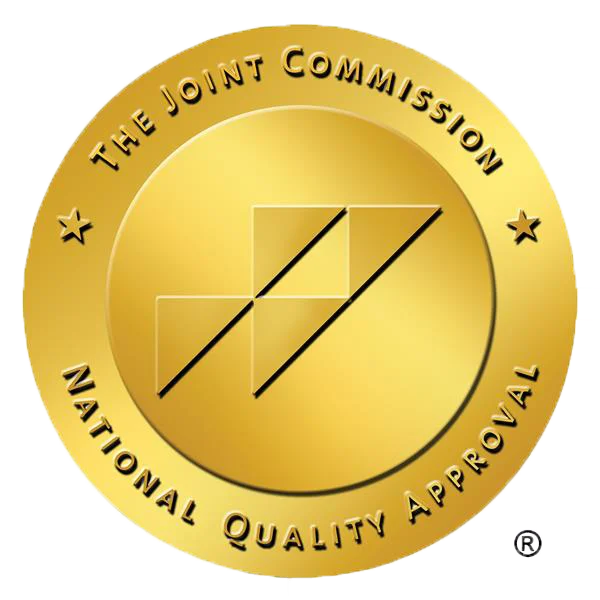Loving someone with a substance use disorder (SUD) can be a profoundly difficult experience. It often means watching someone hurt themselves in ways they aren’t fully in control of. It’s not just painful—it's frustrating.
At Spring Grove Recovery, we understand the relationship dynamics of feeling torn between wanting to help and not knowing how or where to begin. That’s where we come in. We offer person-centered recovery in the heart of Colorado Springs, and we can help you understand how to get a loved one into rehab.
Whether you're navigating the early signs of substance use or your loved one has been struggling for a while, we're here to offer the expert, empathetic guidance you need. Our addiction treatment in Colorado Springs is designed to meet people where they are—with structure, dignity, and whole-person healing. Visit our What to Expect in Rehab page for an understanding of how our services support meaningful change.
Get support for a loved one today
What if my loved one resists rehab?
One of the hardest truths to accept is that many people living with SUD don’t believe they need help. Addiction clouds judgment and fuels denial. Some of the most common reasons people resist rehab include:
- Fear of the detox process and withdrawal symptoms
- Shame or guilt about their addiction
- Fear of being judged or labeled
- Not believing they have a problem
- Previous bad experiences with treatment
Recognizing the reasons why your loved one might be resistant to rehab is vital. It’s this understanding that will help you lend them the kind of empathetic support necessary for them to be receptive to the idea of rehab. This approach, not anger, will keep them from becoming overly defensive.
How do I begin the conversation about rehab?
Timing and tone are key elements of the conversation. Start by choosing a calm, private moment to talk—ideally when your loved one is sober and potentially more open to talking. Avoid making accusations, issuing ultimatums, or saying things that sound judgmental. Instead, lead with concern and care. Examples of phrases to use include:
- “I’m really worried about how much you’ve been drinking lately.”
- “I love you, and I want to see you healthy and happy.”
- “Would you be open to looking at some options together?”
There’s a possibility your loved one hasn't researched treatment centers, so do some research of your own. Having information that you can present to them can make the conversation feel less overwhelming for them. Paint a picture of a clear path forward, rather than just pointing out the problem. Doing that can help make the idea of rehab less intimidating. For example, Spring Grove Recovery offers inpatient treatment, detox, and medically assisted treatment. Knowing some specific details about each phase of treatment will help you present a scenario that’s not the frightening one they may be imagining.
Also, be ready to talk about concrete ways that you’ll be there to support them throughout recovery. If your loved one is a parent, offer ideas around things like childcare. Or, if they’re worried about cost, mention that Spring Grove Recovery accepts Medicaid and most major insurance providers. Our team is happy to provide you with answers to these types of questions before you speak with your loved one.
What if they’re defensive?
It’s natural for someone to become defensive when confronted about their substance use. It’s a topic that causes feelings of shame, so pushing against those feelings is normal. The important thing is not to match that defensiveness with your own. Instead:
- Stay calm and keep your tone compassionate, yet firm.
- Validate their feelings without agreeing with their behavior: “I hear you, and I still think this is important.”
- Set boundaries lovingly: “I can’t continue to pretend this isn’t affecting our family.”
Remember, your goal isn’t to win or convince. Treatment is most effective when people want to change their lives, not because they’ve been coerced. Your goal is to plant seeds of possibility and hope. Even if they don’t accept the idea of going to rehab right away, you’ve opened a door for future conversations. That’s a big deal.
Get support for a loved one today
How do I know if I need to plan an intervention?
An intervention is structured conversation in which loved ones, ideally with the help of a trained interventionist, confront a person struggling with addiction. The aim should not be to create a combative environment, but a calm, supportive one. Not everyone needs a formal intervention, and it shouldn’t be your first course of action, but for some families, it can be an effective way to break through denial. It may be necessary if an addiction has escalated or multiple attempts at private discussions have been unsuccessful.
Questions to ask yourself when considering an intervention include:
- Has your loved one experienced relapse multiple times?
- Have things escalated to risky behaviors, like DUIs or overdose?
- Are they in denial and unable to admit they have an SUD?
- Do conversations become combative or unproductive?
If you answered “yes” to any of these questions it may be time to enlist the support of a professional interventionist to help you prepare for the next conversation and reduce emotional fallout.
What type of rehab does my loved one need?
Spring Grove Recovery offers a range of services to support different levels of substance use, co-occurring mental health concerns, and our client’s unique stories:
- Medical Detox: For individuals who are physically dependent on alcohol, opioids, or other substances, detox is an essential first step. Our medically supervised program helps manage withdrawal symptoms with 24/7 support.
- Inpatient treatment: Sometimes called residential treatment, this is a structured, 21–30 day program that provides therapy, peer support, and daily routines in a calm, peaceful setting. This program is ideal for individuals who need to step away from their environment to fully focus on recovery.
- Medication-assisted treatment (MAT): For those needing additional support managing cravings and withdrawal symptoms, medications like Suboxone, Subutex, and Vivitrol can be part of a comprehensive recovery plan that helps people fully engage in therapy.
- Co-occurring disorder treatment: Many individuals also face mental health concerns such as depression, PTSD, or anxiety. Integrated care ensures both conditions are addressed simultaneously.
Not sure which path is right? Our admissions team can help you determine the best path forward.
How can I support my loved one without burning out?
Helping someone into rehab is only the beginning. Your ongoing support can make a big difference, so taking care of yourself is important. Here are a few ways to find balance during a mentally and emotionally taxing time:
- Set boundaries: Be clear about what you can and can’t do.
- Let go of control: You can offer encouragement and practical help, but they have to do the work. Ultimately, the decision to recover is theirs.
- Join a support group: You likely need more care and support during this time than you even recognize. Groups like Al-Anon provide connection and advice from others in similar situations.
- Prioritize your mental health: Therapy for yourself could be the safe space you need to share your difficult emotions without judgment.
Recovery is a long road, and your wellbeing matters too. Take good care of yourself.
Why Spring Grove Recovery?
Spring Grove Recovery specializes in helping people begin again with dignity, compassion, and clinical expertise. Our programs are designed to address every aspect of recovery, from safe detox to long-term sobriety. We accept Medicaid and most major insurance carriers because we believe treatment should be accessible to anyone who wants it.
Our mission is to provide compassionate, person-centered addiction treatment that supports individuals on the path to a better life. Spring Grove Recovery is here to empower you with resilience. Call 719.415.3460 today or submit our online contact form.

